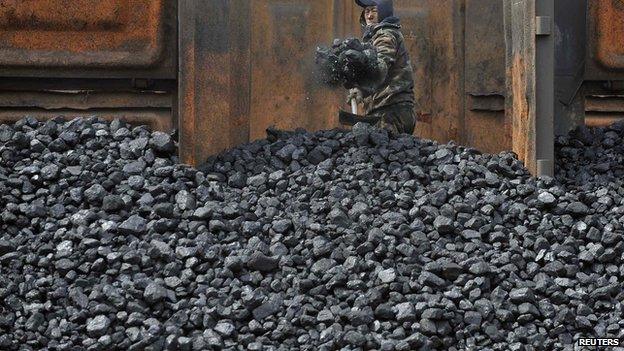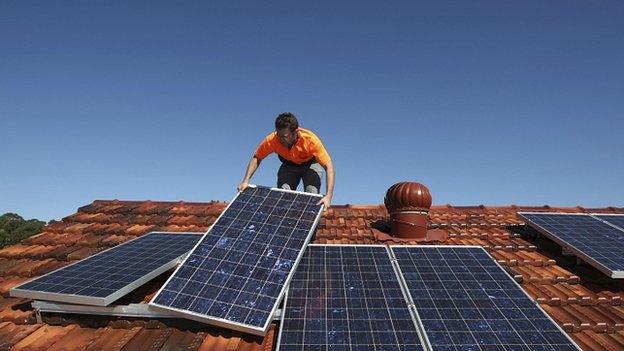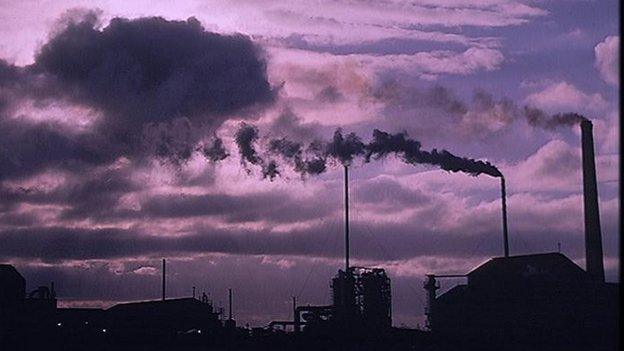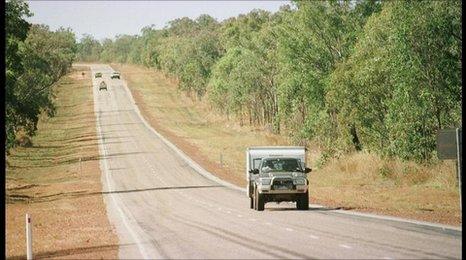Australia is 'holding back' global climate change fight
- Published

Coal from Australia is supplying booming demand in countries such as China
Australia is a drag on international efforts to tackle climate change, says leading economist and former government adviser Professor Ross Garnaut.
Prof Garnaut said the country had failed to make its "fair share" of greenhouse gas cuts.
Earlier, Prime Minister Tony Abbott reiterated his position that coal was the foundation of global energy needs.
Australia has the world's highest carbon emissions per capita and is its second biggest coal exporter.
Prof Garnaut, who teaches at the Australian National University, external, said progress made by the government's Direct Action policy would be undone by emissions made by companies not covered by that policy.
Direct Action includes a A$2.5bn (£1.4bn; $2.2bn) fund that will be used to pay big polluters to cut emissions and use cleaner energy.
"It is a bit sad. We are a drag on the international efforts [to tackle climate change]," Prof Garnaut said in an interview on ABC TV.
"You could make the case [that] we were once doing our fair share, now we are not," he said.
Fossil fuels warning
Prof Garnaut was appointed by the previous Labor government to examine the impact of climate change on the Australian economy.
He said it was clear before the last election that the main political parties supported Australia's commitment to the United Nations to cut emissions unconditionally by 5% from 2000 levels by 2020 - and by a further between 15% and 25%, depending on the extent of international action.
He was reacting to comments by Mr Abbott made earlier in the day that coal was the foundation of Australia's prosperity and would be so "for the foreseeable future".
Mr Abbott said that if the world was serious about lifting the living standards of the poorest people, "we have to be serious about making the best use of coal".
A UN-backed expert panel has warned that the unrestricted use of fossil fuels must be phased out by 2100 if the world is to avoid dangerous climate change.
The Intergovernmental Panel on Climate Change says most of the world's electricity can - and must - be produced from low-carbon sources by 2050.
- Published27 October 2014

- Published2 November 2014

- Published17 October 2014

- Published12 January 2013

- Published23 May 2011
